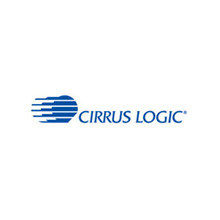Cirrus Logic
Cirrus Logic develops complex solutions for industry leading global brands that differentiate their products in part through our innovative custom and semi-custom ICs. Cirrus Logic
Our Scholarships
Placement Location
Newbury (Berkshire) or Edinburgh
Type of Placements Offered
• Summer placements • 6-month MEng placements
Restrictions/Notes
No 12-month placements
2024/25 Scholarships
At least one new scholarship
Who we are and what we do

Cirrus Logic is a premier supplier of high-precision analog and digital signal processing components for the audio and industrial markets. Founded in 1984, Cirrus Logic develops complex solutions for industry leading global brands that differentiate their products in part through our innovative custom and semi-custom ICs.
Whether you are looking for a challenging internship or are ready to start your career in an entry-level position, you can join the industry in one of our incredible intern or entry-level opportunities!
What you could be doing during your work placement
During your internship with Cirrus Logic, you can expect to work on a technical project relevant to your degree. You will work in a modern, pioneering, office environment in Edinburgh or Newbury, with great benefits including discounted lunches, on-site gymnasium, games area, jam room, happy hours, social events and free snacks, drinks & fruit. You will work as part of team and receive mentoring, support and development from experienced engineers.
We are looking for students with a passion to work in the following areas:
- Analogue and Digital Design – You will need a solid understanding of analogue or digital integrated circuit design. You will work alongside our experienced designers developing IP’s for mixed signal IC’s.
- Verification – You will need a strong background in HDL’s such as Verilog or VHDL. You will work alongside design engineers to support pre-silicon verification.
- Validation Engineer – You will need to be able to use lab equipment such as audio and logic analyzers, DMMs and oscilloscopes. Your work will include developing and executing validation test plans, designing test boards and writing automations scripts to evaluate and debug silicon.
Cirrus Logic offers hybrid working during their placements, which will follow a 2+ day in-office work schedule, with in-office days based on business needs and team preference. You must be based within commutable distance of the work location listed on the job posting, or willing to relocate prior to beginning employment with Cirrus Logic.
Meet one of our Scholars

Name: Daniel
Sponsor: Cirrus Logic
University: University of Cambridge
Degree Course: MEng Engineering Tripos
What appeals to you about Electronics?
Initially I was on a General Engineering course set on becoming a Chemical Engineer, before being bitten by the electronics bug! I had already enjoyed doing some programming in my spare time and choosing a subject where I could see what goes on underneath the Silicon hood of these machines, and applying skills I had learnt outside academics was a great motivator. As I learnt more about electronics, I realised how huge of a subject it is, giving me a wide career path if my passions later developed in a different direction.
Why did you want a scholarship with Cirrus Logic?
Cirrus Logic has a strong record for industry leading IP development in the mixed-signal processing space. Having enjoyed both the signals processing and digital electronics courses at University, it was a great place to explore the industry side of my university courses. Being at a large company meant I would have the chance to interact with top professionals in the field, and have a large resource pool to enable me to operate at my best.
What type work have you been involved with during your placement?
Over my placement, I have investigated the use of Chisel in the digital design workflow. Chisel is a new HDL (Hardware Description Language) similar to Verilog or VHDL. The difference is that Chisel has all of the powerful features of a modern language, possibly enabling hardware designers to increase the speed and parameterization of their designs. An interesting example is a base module (like a base class), which different implementations can inherit. This work has been both challenging and fascinating, as it has made me think critically about such an integral part of the digital design world.
What are your interests outside of work?
In my spare time I enjoy rowing. Rowing was a hobby I picked up at university due to the massive culture there! The feeling of gliding across the water is brilliant and helps to take my mind off things.